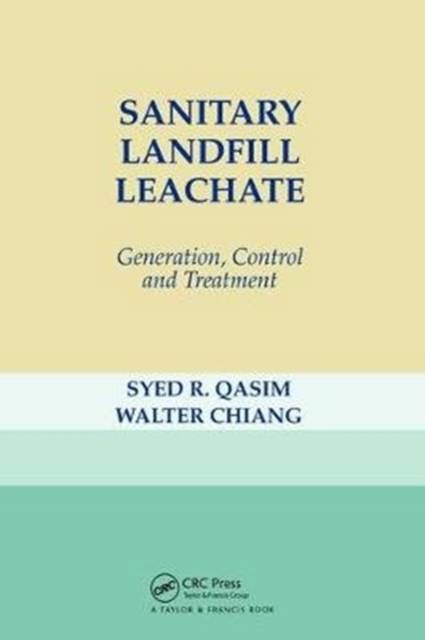
- Afhalen na 1 uur in een winkel met voorraad
- Gratis thuislevering in België vanaf € 30
- Ruim aanbod met 7 miljoen producten
- Afhalen na 1 uur in een winkel met voorraad
- Gratis thuislevering in België vanaf € 30
- Ruim aanbod met 7 miljoen producten
Omschrijving
Sanitary landfills are the most widely utilized method of solid waste disposal around the world. With increased use and public awareness of this method of disposal, there is much concern with respect to the pollution potential of the landfill leachate. Depending on the composition and extent of decomposition of the refuse and hydrological factors, the leachate may become highly contaminated. As leachate migrates away from a landfill, it may cause serious pollution to the groundwater aquifer as well as adjacent surface waters. There is growing concern about surface and groundwater pollution from leachate. Better understanding and prediction of leachate generation, containment, and treatment are needed.
This book contains a literature review of various methodologies that have been developed for prediction, generation, characterization, containment, control, and treatment of leachate from sanitary landfills. The contents of this book are divided into nine chapters. Each chapter contains theory and definition of the important design parameters, literature review, example calculations, and references.
Chapter 1 is devoted to basic facts of solid waste problems current status and future trends towards waste reduction and recycling. Chapter 2 provides a general overview of municipal solid waste generation, collection, transport, resource recovery and reuse, and disposal options. The current status of sanitary landfill design and operation, problems associated with the landfilling, and future trends are presented in Chapter 3. Methods of enhanced stabilization, recycling landfill space, methane recovery, and above grade landfilling, and closure and post closure care of completed landfills are also discussed in detail. Chapter 4 provides a general overview of Subtitle D regulations and its impact upon sanitary landfilling practices. Chapter 5 is devoted entirely to moisture routing and leachate generation mechanisms.
Specificaties
Betrokkenen
- Auteur(s):
- Uitgeverij:
Inhoud
- Aantal bladzijden:
- 352
- Taal:
- Engels
Eigenschappen
- Productcode (EAN):
- 9781138474352
- Verschijningsdatum:
- 25/08/2017
- Uitvoering:
- Hardcover
- Formaat:
- Genaaid
- Afmetingen:
- 156 mm x 233 mm
- Gewicht:
- 452 g

Alleen bij Standaard Boekhandel
Beoordelingen
We publiceren alleen reviews die voldoen aan de voorwaarden voor reviews. Bekijk onze voorwaarden voor reviews.











